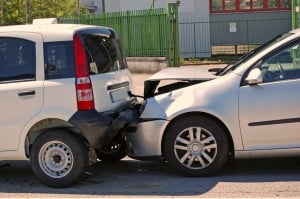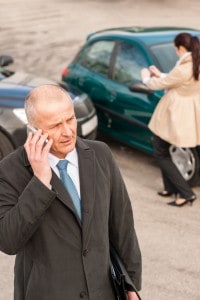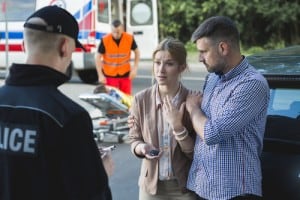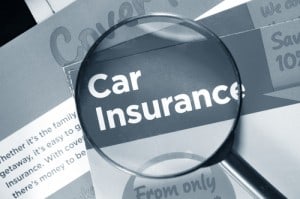10 Tips after Experiencing a Car Accident
July 28, 2017These essential tips and simple steps can help you prepare for legal action following a car accident.

After a Car Accident: Stop Your Vehicle
Tip #1: Stop Your Car
It is never a good idea to drive away if you have been in a car accident. Even if it seems that the accident is minor and that injuries are unlikely, stop and make certain that is the case before you leave the scene. It is easy enough to hop back in the car and take off once the other driver confirms that everyone is fine and that there was no vehicle damage.
If you leave the scene of an accident in which someone is hurt or a vehicle is damaged, you may be charged with a serious crime called hit and run, even if you were not at fault. Hit-and-run penalties can be severe, including losing your license, fines or even jail time.
Call (713) 352-7975 or Text (281) 612-8024
to speak with a LIVE legal professional for a FREE Consultation
You can also Email Us
For a Free, No Obligations Initial Consultation
Tip #2: Check for Injuries
People are more important than property, always. Before inspecting the vehicles involved, confirm that every driver and passenger is okay. Get medical help for anybody who is or claims to be hurt or injured by calling 911 for an ambulance. Stay on the line to answer questions.
Unless there is some imminent danger, never try to move an unconscious person or anyone complaining of neck or back pain, since this could make the injury worse. Let qualified medical personnel make decisions about their care. But do move anyone in immediate danger out of harm’s way, e.g. someone thrown onto the road or in a burning vehicle.
Tip #3: Protect the Accident Scene
It’s best to leave all of the vehicles involved in the accident in place until the police arrive. All too often, however, one accident causes other accidents, as cars don’t see the crash until it is too late and slam into the disabled cars.
What you can do is:
- Set up flares or neon triangles to direct traffic around your cars.
- Keep your car hazard flashers on and lift the hoods of the cars (if you aren’t carrying any flares or neon triangles).
- Use a flashlight to signal cars to pass around you, taking care not to step out into traffic (if the accident knocked out your lights).
Call (713) 352-7975 or Text (281) 612-8024
to speak with a LIVE legal professional for a FREE Consultation
The Amaro Law Firm has 5-star ratings on Google and Facebook.
Tip #4: Call the Police

After a Car Crash: Call the Police
If there are serious injuries or extensive property damage, calling the police is mandatory. Even if the accident is a minor one, calling the police is a good idea. To make an insurance claim for property damage, you may need a police report.
- When the police officers arrive, take the time to tell them everything that happened in the order it happened, as well as you remember. Don’t be afraid to say you don’t know things if that is the case. It’s far better to say you don’t know than to guess at what happened or tell a story that turns out later to be false.
- When police ask if you are injured, if there is any doubt in your mind, say you are not sure. Don’t try to pretend everything is okay if there is any pain or discomfort. Often, pain from a car accident gets worse a few hours or even a few days after the crash itself.
Ask that the officers prepare a police report regarding the accident. Jot down the names and badge number of the police who are on the scene and find out from them where you can get a copy of the report.
Tip #5: Exchange Information with the Other Driver
The investigating police officer often gets the names and address of each driver as well as the insurance information, but it is wise to do it yourself, just in case. It is critical for you to initiate an information exchange if the police don’t come to the accident scene.
What information to exchange? You and the other driver(s) should show each other your driver’s license, car registration and insurance information. Then, write down the:
- The other driver’s name, date of birth, address and phone number
- The other driver’s license number, license expiration date and issuing state
- The other car’s make, model, year, license plate number and expiration date, and vehicle identification number.
Don’t assume the other driver owns the car. The registration and insurance cards provide you with the names, addresses, telephone numbers and insurance companies of the other car’s legal and registered owners. Also get the names, addresses, dates of birth, driver’s license numbers and telephone numbers of any passengers in the other cars involved in the accident.
Call (713) 352-7975 or Text (281) 612-8024
to speak with a LIVE legal professional for a FREE Consultation
Or Email Us
Tip #6: Collect Other Evidence
People experience and remember things differently, so even if drivers and passengers involved in an accident are acting honestly, they may tell different stories of what happened. So documenting is one of your jobs after a car accident:
- Write out your own memory of what happened as soon as possible after the accident. If the police don’t come immediately, use the wait time to jot down the details. Start with the date, time and location of the accident, then weather and road conditions.
- Draw a simple diagram of how the accident happened, including the positions of both cars before and after the crash. Include any skid marks on the road. Add in crosswalks, stop signs and traffic lights.
A photo is worth a thousand words, so snap away with a camera, tablet or smart phone. Take pictures of:
- The vehicle placement immediately after the accident, especially if you have to move the cars before the police arrive in order to let traffic by.
- Damage to vehicles, and any visible injuries you suffered. Photos of the car before and after the accident assist your insurance adjuster to figure out how much you are due for the vehicle damage.
Talk to people who saw the accident:
- Get names and phone numbers from every potential witness, even those who say they were looking the other way. That way, a witness who changes her story later can be confronted with the differing story she gave right after the accident. If people from the area come over to help, ask them if they have ever seen other accidents in the same place. That could indicate that the highway is somehow dangerous or mismarked.
- If witnesses refuse to stay to talk to the police, get their version of events before they go.
- If they refuse to give you any information, look for ways to identify them, like writing down their car’s license plate number. The police or attorneys can trace the owner’s name and address.
Tip #7: Provide All Facts but Skip the Apologies

After a Car Wreck: Provide the Facts, Skip the Apologies
Being a concerned citizen in an accident is different from admitting fault. While you want to do everything necessary to help the injured, it’s not a good idea to apologize or express regret that you did something or didn’t do something that may have factored into the accident.
These type of admissions can come back to haunt you later. For example, if you apologize for driving after having a beer, this may lead police and the other driver to assume your intoxication caused the accident, when later facts may show the other driver’s brakes were faulty and you were within the legal limit for alcohol consumption.
You may not know enough facts at the scene to accurately determine who was at fault, and any assumptions you make will be hard to retreat from later. In short, never volunteer any information about who caused the accident before you talk with your insurer and/or attorney.
Call (713) 352-7975 or Text (281) 612-8024
to speak with a LIVE legal professional for a FREE Consultation
Tip #8: Get Medical Attention
Often, injuries caused by motor vehicle accidents do not show up at the time of the accident. Many people feel pain a day or even two after a crash. Unless you are 100% sure that you did not get hurt, go to the emergency room after the accident or schedule an immediate visit with your doctor. Even if the impact was minor, you might still have suffered injuries to your neck or back. If you lost consciousness or felt dazed for a short period of time after the collision, you may have suffered a concussion.
Keep careful records of the medical experts you see, including their names, treatments and medications you receive. Request copies of your medical reports and bills from the accident, since these prove your medical expenses.
If your injuries impact your daily life – like missed work – keep an ongoing list of this. Include any routine activities you can’t undertake, and describe how the injuries have affected your life.
Tip #9: Talk to Your Attorney
If you were injured in the accident, contact an attorney who specializes in vehicle accident personal injury claims. Once you get an attorney on board, he or she can protect your rights and advise you on how to make sure you are fully compensated for your injuries. Don’t make a statement to your insurance company or the other driver’s insurer until you have received legal advice.
What if you don’t have any extra money to hire an attorney? It’s not an issue. Personal injury attorneys almost always work on a contingency fee (no recovery, no fee) basis. This means that you don’t have to pay legal fees unless the attorney gets you a recovery from the other driver.
Tip #10: Notify Your Insurance Company

After an Auto Accident: Call Your Insurer
Call or visit your insurer as soon as possible to tell them about the accident. Many policies require that you report the accident quickly and work with the company on the matter. Cooperate fully in their investigation.
Share all facts you have with your insurance company and be scrupulously honest. If the insurance company catches you in lies, you can find yourself in big trouble, and you may be denied coverage for the accident. You shouldn’t speculate, however, about anything you do not know.
Get Experienced Help with Your Claim:
Contact a Houston Car Accident Lawyer at the Amaro Law Firm
A Houston car accident lawyer at the Amaro Law Firm is ready to discuss your potential claim and point out your recovery options.
Call (713) 352-7975, text (281) 612-8024 or email our firm for a free consultation.
Relentless and resourceful, our Houston car accident lawyers have the skills and insight you can count on for superior representation, personal service and effective advocacy at every phase of your claim. Our goal is help you secure the full amount of compensation you deserve so you can concentrate on healing and rebuilding your life.
Our record of exceptional representation and success in car accident cases has earned us 5-star ratings on Google and Facebook.
